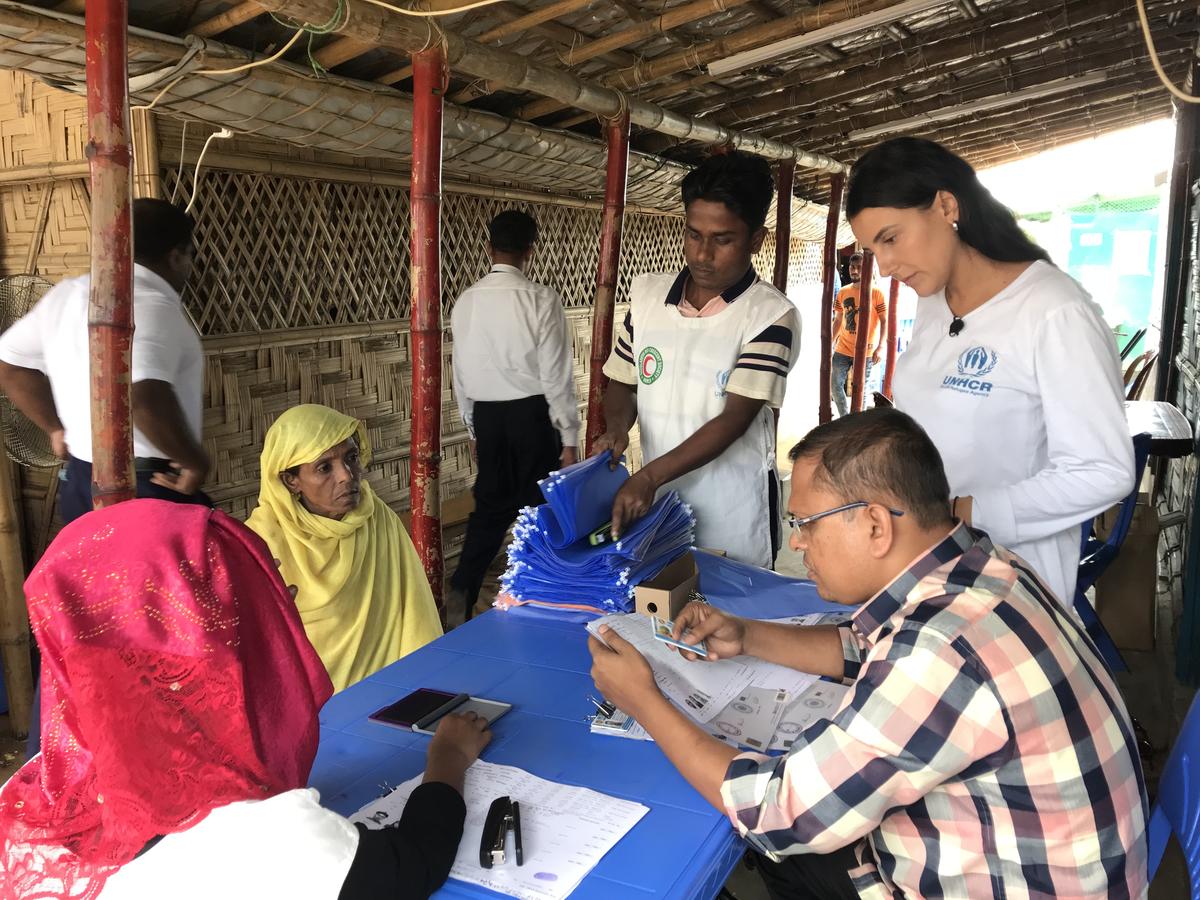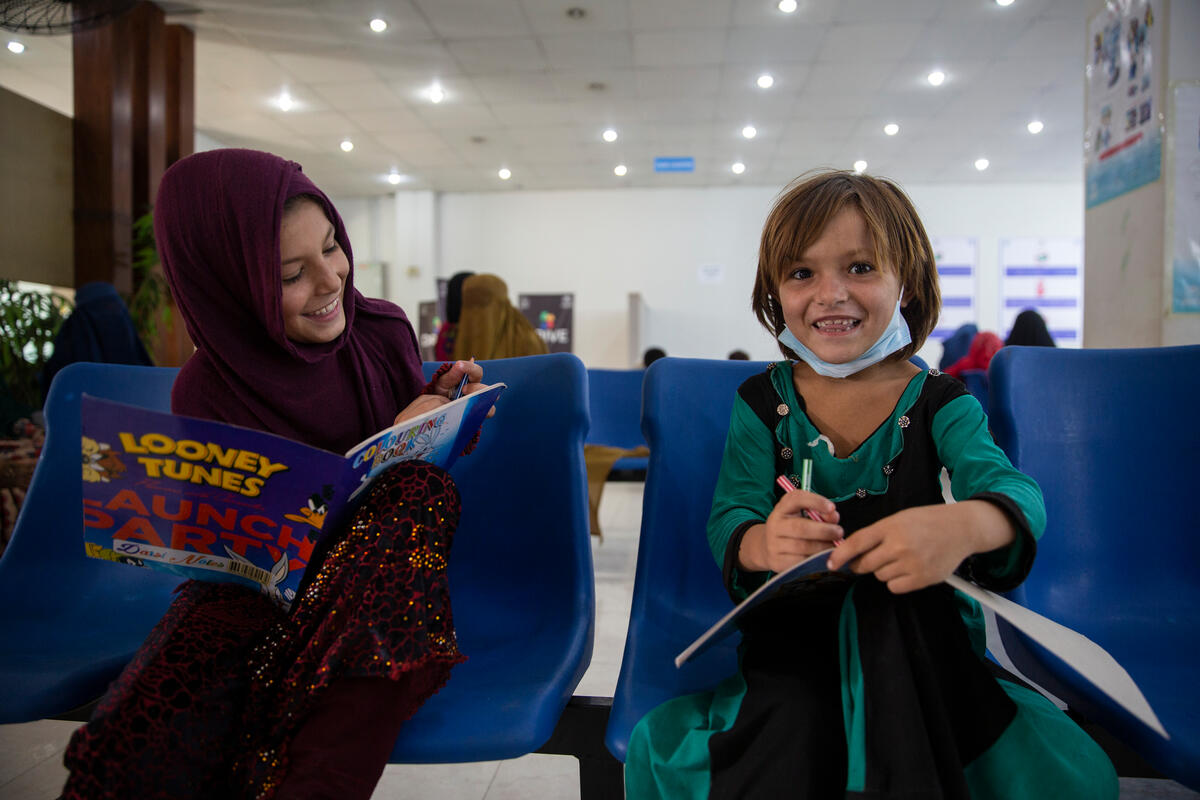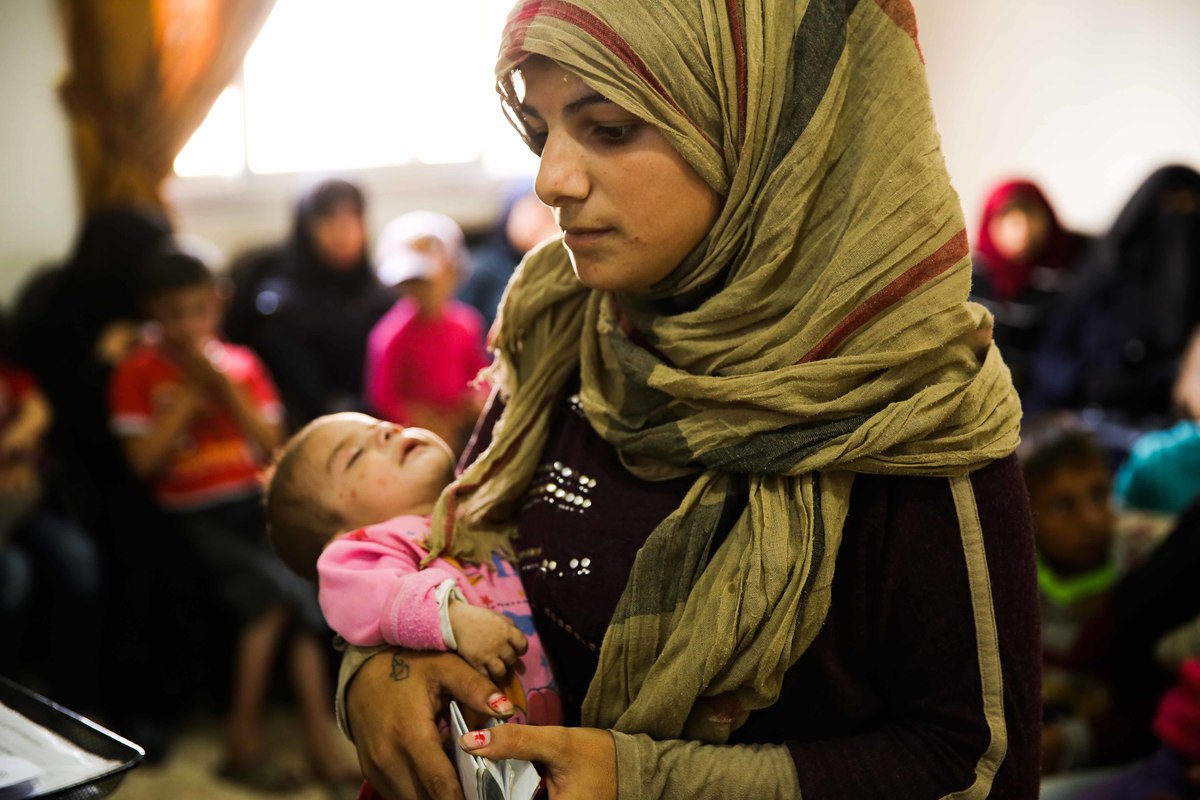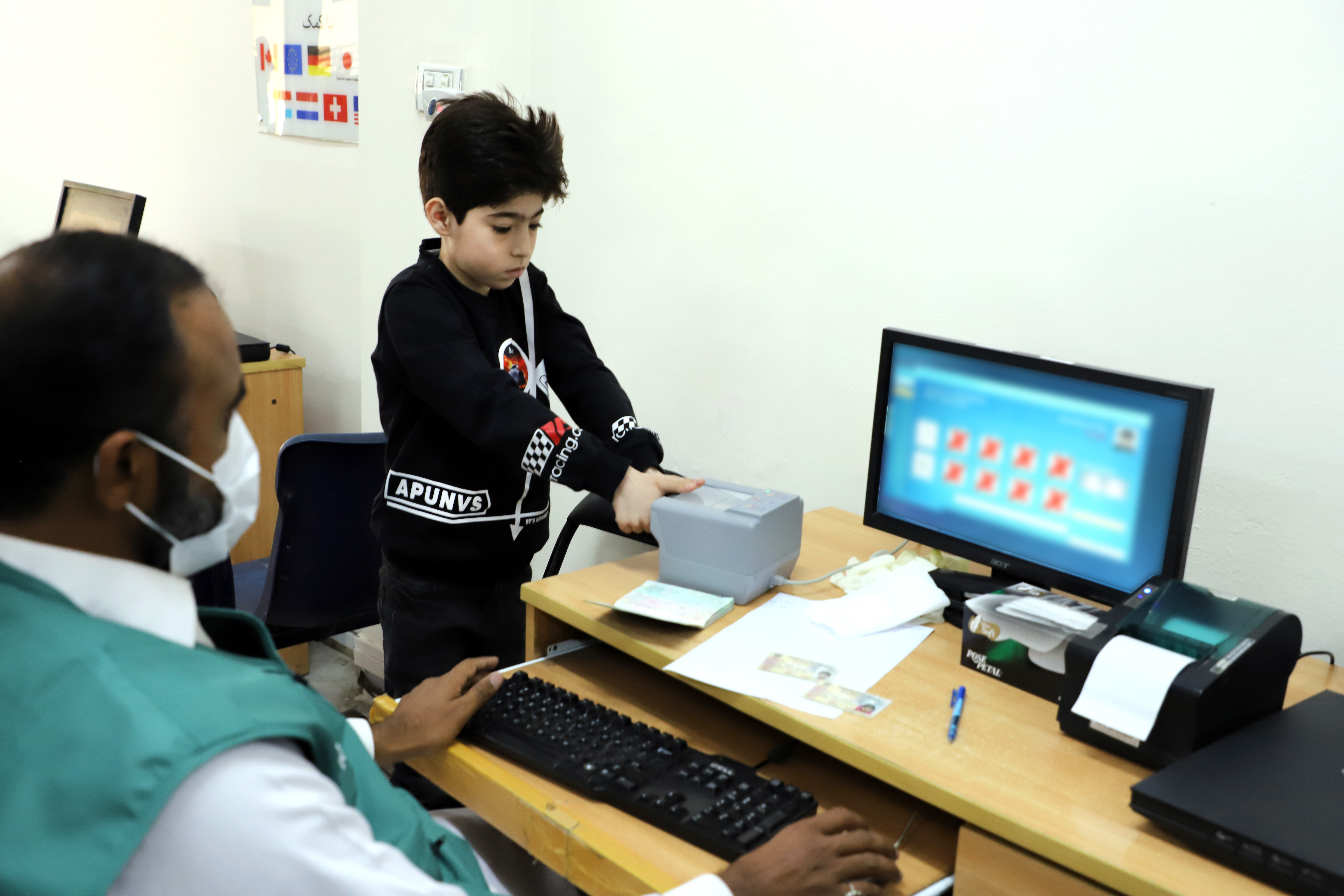Afghans in Pakistan get registered for first ever identification
Afghans in Pakistan get registered for first ever identification
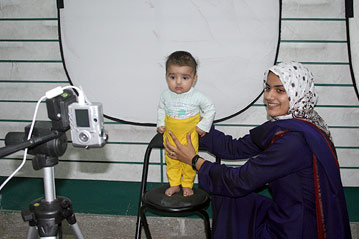
ISLAMABAD, Pakistan, October 16 (UNHCR) - More than 1,000 Afghans in Pakistan were registered at the weekend as the Pakistan government started a landmark exercise to issue them with identification for the first time.
The countrywide registration, which started on Sunday and will continue till the end of the year, is a follow-up to a government census last year that counted 3.04 million Afghans who arrived in Pakistan after the 1979 Soviet invasion and are still living in the country.
More than 580,000 have repatriated since then, leaving an estimated 2.5 million Afghans in Pakistan. Only those counted in the 2005 census are eligible for registration, which will grant them a Proof of Registration card. Valid for three years, the card recognises them as Afghan citizens living in Pakistan.
The UN refugee agency is helping the government to raise the US$6 million needed for the exercise. "This is the largest-ever registration by any host country of a mixed population in a protracted situation," said Indrika Ratwatte, UNHCR's Assistant Representative in Pakistan. "UNHCR has been assisting the government in the planning and execution of this undertaking for over two years, and we hope it will further strengthen the asylum space for those Afghans in need of international protection."
Given the huge population involved - Afghans are the largest group of concern to UNHCR, and the majority of them are hosted in Pakistan - the scale of the registration is also massive. The National Database and Registration Authority of the Pakistan government has set up some 100 centres around the country for the 10-week exercise.
The first challenge is convincing eligible Afghans to register. "If the government knows who and where we are, they'll round us up and send us home," said one Afghan in Muzaffarabad, Pakistan-administered Kashmir. Another in Chitral, North-West Frontier Province, feared the photographs would be sent to the United States. They only relented after reassurances from UNHCR staff.
The logistics are also daunting. To register, entire Afghan families must approach designated centres in the same area where they took the census. UNHCR and government staff check the head of household's name against the census database - a challenge in itself, given the countless ways there are to spell an Afghan name in English.
Eligible families get a token and move on to the photography booth. Women in burqas are helped by female staff behind curtains. Twitchy children can barely sit still - one boy in Islamabad had to remove his Batman mask for the shoot - while sleepy newborns swathed in blankets are held by their parents for their photo.
The next stage - fingerprinting - is straightforward, although the digital finger pad sometimes has trouble picking up the prints of carpet weavers and women with henna on their hands. The head of household then answers questions about the family's biodata, such as their place of origin in Afghanistan, date of arrival in Pakistan, occupation, education and skills levels, intention to repatriate and obstacles to return. The registration process is completed upon presentation of the Proof of Registration card to all participants above five years of age.
Habibullah, 55, was among the first Afghans registered in Muzaffarabad. "I'm very happy about this registration because there will be a valid document issued by the government of Pakistan that recognises us," said the scrap collector, who brought his family of 10 for Sunday's registration. "Nobody will bother us again and this will really be in our favour."
In Chitral, Riaz Khan, 45, agreed: "We are happy to be registered because we did not have any identity document before. At times, we had to show our camp ration card to prove that we are Afghan refugees. We had problems staying in hotels but I think now we won't have this problem."
Kabul native Abdul Saboor Samad was one of the first to be registered in Islamabad. "The census in 2005 got our family details and now the registration is taking place," he said. "I guess the main purpose is to give us an identity card telling who we are, where we live and why we live here."
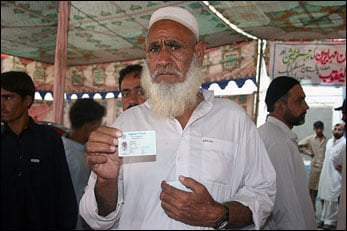
In Jhang of central Punjab province, Afghan elder Faisal Rehman noted, "In Pakistan, they respect us. We have kept our dignity here. In Afghanistan, there is nothing, even if it's our country. Our land in Kabul is barren, there's no vegetation, no reconstruction. But if there is development, we will go back."
In addition to the Afghans registered on Sunday, more than 4,000 other Afghans have been registered in pilot exercises that started in Jhang and Chitral earlier in October.
By Vivian Tan, Babar Baloch in Islamabad, Pakistan
with Asif Shahzad in Muzaffarabad
and Rabia Ali in Chitral



